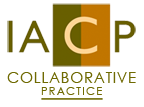CALL: 919-740-7031
Alternatives to Litigation
I was a litigator for twenty-five years. However, in the past several years, I’ve had a shift in my consciousness, and I now believe litigation is the worst, and most destructive way of resolving the issues between two people who can no longer live together peacefully. Fortunately, there are many ways of resolving cases without filing a lawsuit, or prior to trial after a lawsuit has been filed. Here’s an overview of some methods.
Prior to Filing or Instead of Filing a Lawsuit
- Collaborative Law: The parties and their attorneys sign a pledge not to go to court and not to threaten litigation. They also agree to share information openly and honestly, and to try to reach a resolution that is “fair,” rather than purely “legal.” The language of collaborative law includes “co-parenting” instead of “custody and visitation,” and “cash flow” instead of “child support and alimony.”
- Mediation: With the help of a trained third party mediator, the parties and their attorneys offer proposals and try to reach solutions without going to court.
- Arbitration: The parties and their attorneys hire a third party “arbitrator” to be a private judge. They try their case to the arbitrator outside of a courtroom, without being subject to the sometimes arbitrary rules and deadlines and the lack of privacy that come with a publicly filed case.
After Filing a Lawsuit
- Collaborative Law: Even after a lawsuit has been filed, the parties can file a notice with the court suspending litigation while they try to reach a peaceful resolution through the collaborative process. If they are successful, the lawsuit is dismissed. If they are not successful, the lawsuit resumes.
- Mediation: Mediation is mandatory (with some limited exceptions) in child custody cases, and often attempted in equitable distribution (property division) cases. The process is the same as outlined above.
- Neutral Evaluator: A third party, often a retired judge or an experienced attorney, who can evaluate the pros and cons of each side’s case and give a realistic opinion of the likelihood of success at trial.
- Parent Coordinator: A trained individual, appointed by the court or by agreement of the parties, who can listen to both parties’ disagreements about their children, and then make a decision, without the parties having to wait to go to court, and incur added time and expense. Parent Coordinators often deal with issues such as pick up and drop off times, holiday and vacation schedules, choice of school issues, religious issues, discipline issues, and other problems that arise between parents.
- Judicial Settlement Conference: A judge not involved with the case can meet with the parties and like a neutral evaluator, can evaluate the pros and cons of each side’s case and give a realistic opinion of the likelihood of success at trial.
- Referee: A third party appointed by the court to handle a limited issue, such as valuing personal property, or selling a vehicle. Each of these methods is right for some cases and not others, but in any given case, one or more of these alternative methods can be useful for resolving all or a part of the case more peacefully than going to court. I truly enjoy these methods, and actively seek out opportunities to use them.
Each of these methods is right for some cases and not others, but in any given case, one or more of these alternative methods can be useful for resolving all or a part of the case more peacefully than going to court. I truly enjoy these methods, and actively seek out opportunities to use them.

